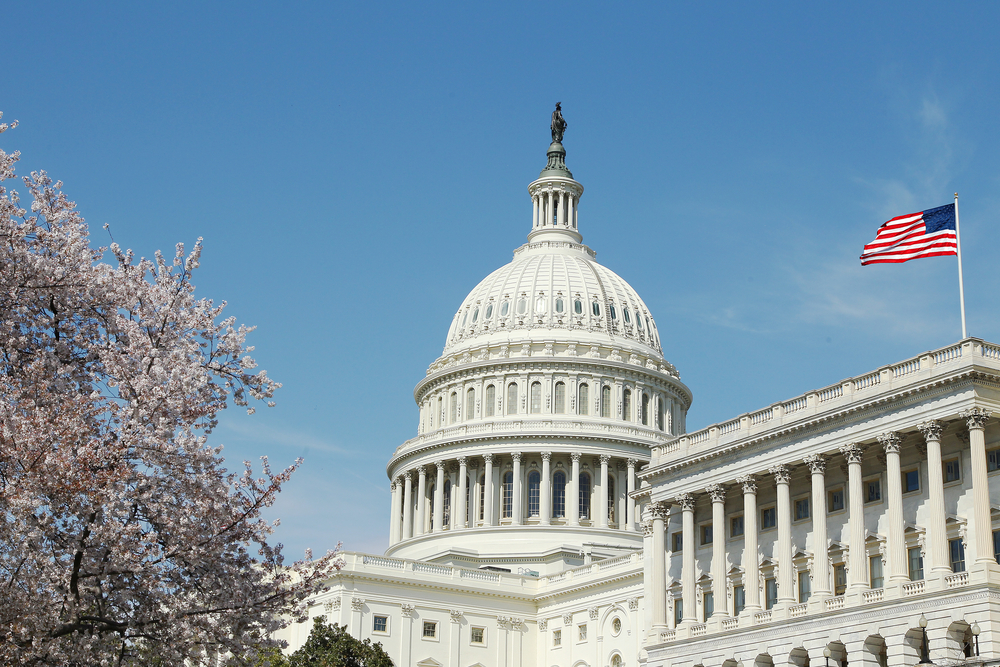Foundation Hosts Congressional Briefing About Sarcoidosis Awareness
Written by |

During Rare Disease Week 2017 on Capitol Hill, the nonprofit Foundation for Sarcoidosis Research (FSR) co-cohosted a briefing to members of Congress stressing the importance of National Sarcoidosis Awareness Month in April.
The FSR says recognizing the month would draw more attention to, enhance awareness of, and promote more research into this rare disease.
According to the FSR, the congressional briefing, which was sponsored by New York Rep. Lee Zeldin’s office, attracted a great turnout, with many offices sending their health aides and staff to attend. An introduction by FSR Director of Education and Outreach Kelli Beyer was followed by three of FSR’s patient ambassadors sharing their personal experiences with sarcoidosis.
Mary, one FSR ambassador, told about her husband’s sudden death as the result of cardiac sarcoidosis, and emphasized the importance of early detection of the disease through screening programs. Raul talked about his experiences as a 9/11 first responder and with the World Trade Center Health Monitoring Program. And Frank, another patient ambassador, recounted his four-year ordeal with a misdiagnosis of lung cancer before doctors determined he was actually suffering from sarcoidosis.
FSR has posted a video of the briefing session where Frank observes that recognizing April as Sarcoidosis Awareness Month would acknowledge and validate the voices of patients and confirm that they are being heard. FSR notes that the resolution could help open the door to new legislative action pertaining to advocacy for sarcoidosis and other rare diseases.
FSR has also posted a map of U.S. states that have proclamations passed or pending for 2017’s Sarcoidosis Awareness Month.
An FSR blog notes that congressional staffers who attended the briefing were “very receptive” to the patient ambassadors’ stories, with many asking about more than a resolution to designate April as National Sarcoidosis Awareness Month, and some wanting to know what will be coming next for rare disease patients and how the 21st Century Cures Act enacted Congress in December 2016 has affected sarcoidosis patients.
FSR representatives were able to tell them more about how legislation like the OPEN Act (Orphan Product Extensions Now, Accelerating Cures & Treatments) could be of great benefit to the sarcoidosis community.
The FSR describes sarcoidosis as a disease that causes the formation of tiny clumps of inflammatory cells called granulomas in one or more organs of the body. When the immune system is abnormally stimulated and too many of these clumps form, they can interfere with an organ’s structure and function, and if left unchecked, chronic inflammation can lead to fibrosis — a permanent thickening or scarring of organ tissue.
The exact cause of sarcoidosis is unknown, but understanding the mechanisms by which the disease develops is advancing. Researchers currently think that one or more exposures in people with a specific genetic makeup can stimulate cells in the body to react and start recruiting inflammatory cells in involved organs, initiating an immune response.
FSR says some research has suggested that various bacteria, viruses, or chemicals that are usually harmless in most people might trigger sarcoidosis by irritating the immune systems in people genetically predisposed to developing the disease, although based on current scientific knowledge, FSR does not currently consider sarcoidosis to be an autoimmune disease in the sense that disorders like rheumatoid arthritis and lupus are. Research is ongoing.
Dedicated to finding a cure for sarcoidosis since its establishment in 2000, the FSR has fostered approximately $3 million in sarcoidosis-specific research and provided resources to tens of thousands of sarcoidosis patients worldwide. FSR provides funding for research focused on increasing understanding and addressing the causes of the disease, the suffering of patients, and advancing the potential for a cure.
For more information, visit https://www.stopsarcoidosis.org.





